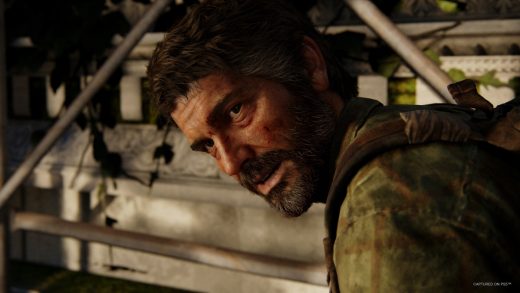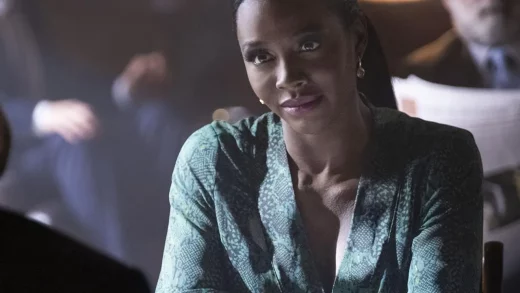:format(webp)/https://www.thestar.com/content/dam/thestar/entertainment/stage/2022/11/09/three-artists-reflect-on-the-importance-of-indigenous-storytelling-as-the-weesageechak-begins-to-dance-festival-returns/_1_indigibabes_collective.jpg)
Denise B. McLeod was searching for an outlet to have fun and express herself, far removed from her day job as a college professor focusing on Indigenous studies, gender-based violence and oppression.
“I love teaching … but it requires so much emotional labour when I’m talking about my own family’s history. All of that is soul-sucking,” said McLeod, who is Anishnawbe.
So, she signed up for a burlesque dance class.
“I got into comedy and burlesque as a response to talking about my trauma every day,” she told the Star.
Flash-forward four years since that first class, McLeod is set to take the stage with her Indigenous burlesque dance group, IndigiBabes, at Weesageechak Begins to Dance, an annual development festival for Indigenous work. It is to run online and in-person at Native Earth Performing Arts’ Aki Studio from Thursday to Nov. 20. The 35th edition of the festival will feature works by more than 15 artists, in addition to other musical performances, panels and a mini pop-up market.
“Burlesque is an art form. I know that burlesque is an art form and a lot of people do, but more often than not, burlesque gets treated as something shameful because we take off our clothes,” said McLeod. “So, it’s such an honour for Native Earth and the Weesageechak Festival to support Indigenous artists and art forms that may not be considered art or supported through a traditional colonial (lens).”
McLeod’s Toronto-based collective will perform a condensed version of their show “Not Your Sacred Object” on Saturday Nov. 12. Through burlesque, the group — made up of Indigenous artists, activists and aunties — aims to reclaim the notions of what it means to express Indigenous sexuality, sensuality and gender expression, said McLeod.
“We are constantly oversexualized and fetishized while also being victim-blamed and told that we need to be modest all the time and never really being allowed to own our sexuality or sensuality,” she said. “I think this is our response to being told that we have to do these things to be good Indigenous people.”
Although the piece is supposed to make audiences feel uncomfortable and confront their preconceived notions of beauty, McLeod hopes audiences have fun, above all else. “A mission of mine is to create space for Indigenous joy and Indigenous brilliance. And I want people who walk out of ‘Not Your Sacred Object’ to have had a really fun time.”
Also featured in the lineup is Indigenous playwright, director and journalist Frances Koncan, who will present an excerpt from their new play, “Medea’s Masquerade.” The reading will occur live on Thursday and will be available online to stream until the end of the festival.
Inspired by Greek mythology, along with Edgar Allan Poe’s short story “The Mask of the Red Death” and the 20th-century expressionist opera “Bluebeard’s Castle” by Béla Bartók, Koncan’s work follows Medea after her husband banishes her from her home. After living in exile for years in a small castle on the Prairie, the sorceress decides to throw a party, but a menacing plague called the Red Death scuttles her plans.
Though the play is still early in development, Koncan said thereading at the Weesageechak Festival is instrumental to the process.
“It’s probably one of the most useful and important parts of developing a play,” they said. “The really fun part about playwriting is it’s not just me writing a play but also everyone watching a play and bringing their ideas to it.”
It’s been an incredibly busy season for Koncan, who hails from Couchiching First Nation. In September, the Stratford Festival announced that Koncan’s hit play “Women of the Fur Trade” will be part of the 2023 season. Another one of Koncan’s new plays, “Space Girl,” will premiere at Winnipeg’s Prairie Theatre Exchange in March.
Koncan credits their slew of new engagements to their pandemic productivity. “I’m an introvert, and I like being alone,” they said. “I love having endless time to write and to think. So I’ve honestly kind of enjoyed being up in my little apartment.”
The pandemic was also a generative period for Jeanette Kotowich, a multidisciplinary creator and dancer of Nêhiyaw Métis and mixed-settler ancestry. “The pandemic has presented certain challenges and limitations but has also allowed me more time for myself and my practice,” she said, adding that the shift from larger ensemble works to solo projects has been artistically fulfilling.
At the Weesageechak Festival, Kotowich will present “Kisiskâciwan,” her solo dance piece more than seven years in the making. An exploration of cultural identity and the idea of home, Kotowich explores memories of her childhood summers and evokes the fast-flowing prairie landscape of Saskatchewan, the traditional territory of her ancestors.
“There’s a vulnerability to the piece, I think, because I’m sharing my emotional journey,” said Kotowich. “But while it’s deeply personal, I also find many people can relate to it and come to better understand their relationship to their land, identity and home.”
Kotowich has relished the opportunity to share the piece with a live audience and said it helps her find new facets and meaning in the material.
“The role of witnessing is so important in what we do as creators,” she said. “There’s a really beautiful relationship between the artists, the creator and audiences. The release of expression and it being held by audiences is what makes the gathering so important.”
Being part of the development festival in Toronto, an event which she has participated in before, is also incredibly special for her, she said.
That the festival returning in-person and this 35th edition “showcases the artistic resiliency of Indigenous performing arts practices,” Kotowich said, “and the diverse voices that’s being shared among all the creators.”
JOIN THE CONVERSATION




